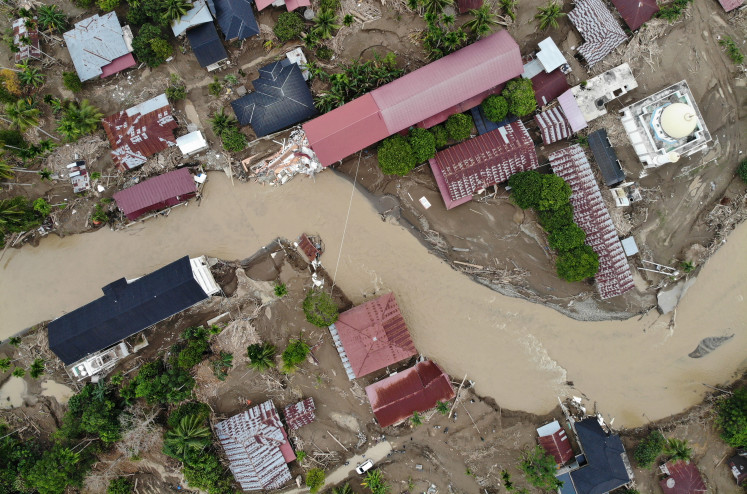Popular Reads
Top Results
Can't find what you're looking for?
View all search resultsPopular Reads
Top Results
Can't find what you're looking for?
View all search resultsWhy the WTO remains relevant for Indonesia
In the history of the WTO, Indonesia has been involved in 11 cases as a complainant, in 14 cases as a respondent and in 22 cases as third party.
Change text size
Gift Premium Articles
to Anyone
W
hen the Marrakesh Agreement was signed in 1994, Indonesia and the other 122 original members of the World Trade Organization (WTO) became contracting parties of a rule-based multilateral trading system.
This meant that they were committed to abiding by the core principles of non-discrimination and to respect a set of rights and obligations in conducting international trade. Since then, the WTO has become the major international regime regulating global trade.
The WTO essentially operates in three different functions. The first is the monitoring function, and it relates to how agreements are being implemented. The second is the litigation function by which members can bring other members into legal disputes if the latter are deemed to be violating their obligations.
The third is the negotiating function, in which members seek deals for new rules or agreements to apply in the future. Indonesia is, in fact, among the members that actively make use of all three of these functions.
To date, the dispute settlement of the WTO is still seen as one of the most effective multilateral legal systems in the world. In this realm, the role of trade legal advisers (lawyers) becomes extremely important to help members assemble evidence and arguments to obtain favorable rulings. In the history of the WTO, Indonesia has been involved in 11 cases as a complainant, in 14 cases as a respondent and in 22 cases as third party.
While critics might note that those legal proceedings, especially the ones in which Indonesia was the respondent, often forced trade policy adjustments on the country, one cannot ignore the fact that there are also legal cases where Indonesia successfully advocated its trade interests and changed the trade policies of other members. The clove cigarettes case against the United States is an example worth mentioning.
In its negotiating function, meanwhile, the WTO seeks to establish future multilateral rules in areas that are not yet or only minimally regulated under WTO agreements. Negotiating activities under the WTO are currently in the so-called Doha Round, in which members are negotiating a number of issues included in the Doha Development Agenda agreed in 2001.


















